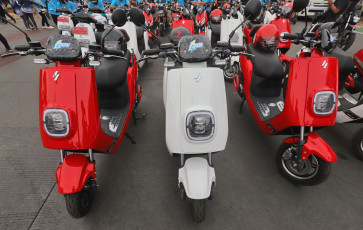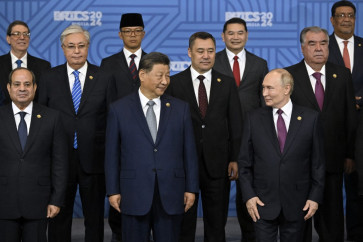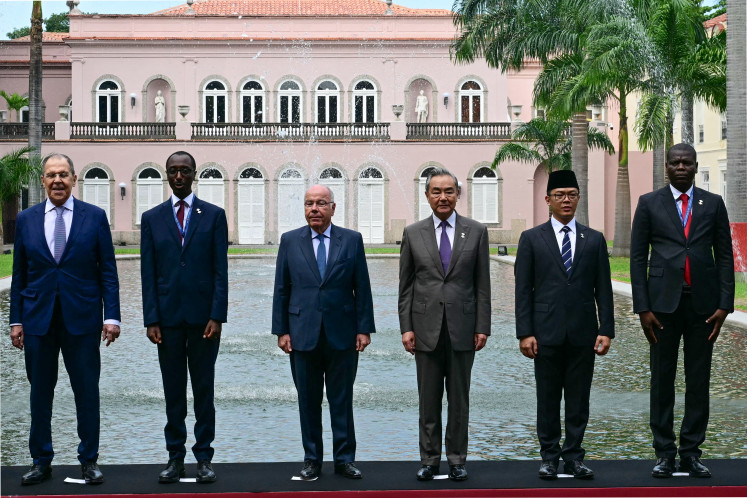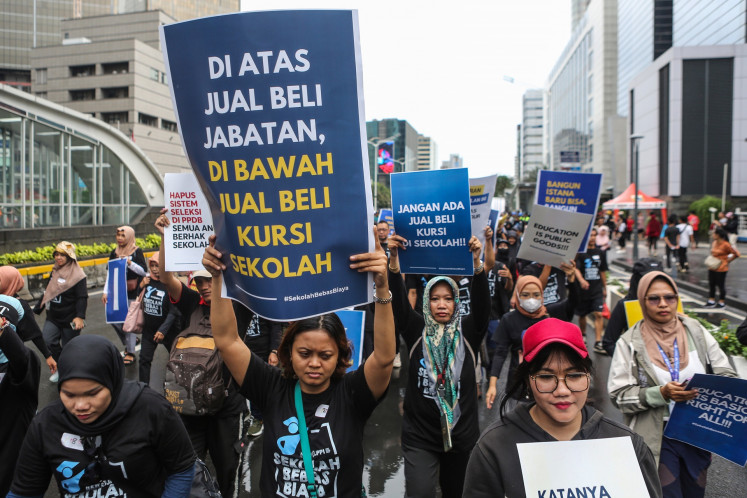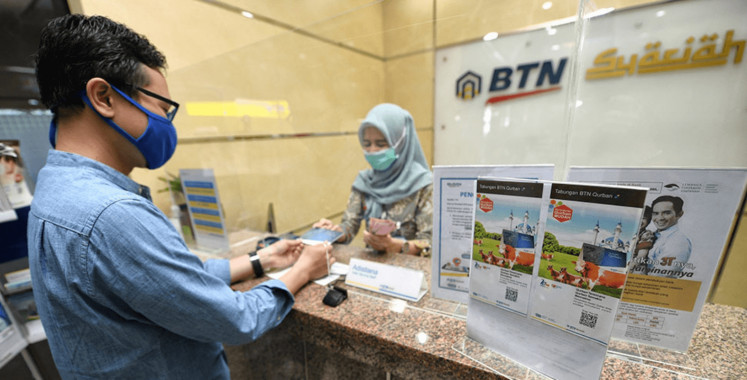Govt faces uphill battle to achieve B50 biofuel goal
The government has reaffirmed its commitment to implementing a 50 percent-blended biodiesel (B50) requirement but has acknowledged that under current oil production projections, it will be difficult to achieve within the next five years
Change text size
Gift Premium Articles
to Anyone

The government has reaffirmed its commitment to implementing a 50 percent-blended biodiesel (B50) requirement but has acknowledged that under current oil production projections, it will be difficult to achieve within the next five years.
“We will mandate the use of B30 starting Jan. 1 [2020] and will move up to B40 by the end of next year [...] but it appears we will have to stop at B50 because supplies are insufficient,” Coordinating Maritime Affairs and Investment Minister Luhut Pandjaitan said in Jakarta on Tuesday.
Energy and Mineral Resources Ministerial Regulation No. 12/2015 introduced a B15 requirement in 2015 and stipulated that a B30 requirement would be introduced in 2020.
While the regulation does not require the country to go beyond B30, Luhut said President Joko “Jokowi” Widodo wanted to see the biodiesel requirement increased in line with the country’s crude palm oil (CPO) production.
The coordinating minister pointed to the Agriculture Ministry’s palm oil replanting program, which has provided higher-yield palm oil saplings to plantations around the country since October 2017, as the key to increasing production.
According to Indonesian Oil Palm Association (GAPKI) data, Indonesia produced 51.1 million tons of CPO last year, of which 34.7 million tons was exported, with 13.5 million tons consumed domestically and the remainder stored for future use.
Even though domestic CPO production is sufficient for a B50 program, Institute for Essential Services Reform (IESR) executive director Fabby Tumiwa told The Jakarta Post on Thursday that domestic supplies were dependent on global prices.
The government’s Indonesian Oil Palm Estate Fund (BPDP-KS) can subsidize palm oil for biodiesel production when prices are low but once prices rise, producers prefer to export, unless the government can match the price difference, he said.
Biofuel producer Paulus Tjakrawan also underlined the importance of CPO exports, saying “Indonesia needs foreign exchange, so CPO exports cannot be reduced”.
“Hence, we need to replant [to increase production],” he said.
Paulus, executive director of the Indonesia Biofuel Producers Association (Aprobi), estimated that 22 million tons of CPO would be needed per year to meet the needs of a B50 program and other domestic uses.
According to the Office of the Coordinating Maritime Affairs and Investment Minister’s own projections, the productivity of Indonesia’s palm oil plantations will see a 3 percent compound annual growth rate (CAGR) over the next 31 years.
Under such projections, Indonesia will only be able to produce 22 million tons of CPO for domestic use per year, without compromising exports and reserve stocks, by 2035, 11 years after Jokowi’s term ends.
“Right now, the main challenge [for the replanting program] are legal hurdles around plantation ownership, but if we can coordinate and work together, we can solve these problems one by one,” said the Agriculture Ministry's plantation development director, Dedi Junaedi.
From the program’s launch date until November this year, the Agriculture Ministry disbursed Rp 2.33 trillion (US$166.3 million) to replant 120,353 hectares on oil palm plantations, representing 66.8 percent of the ministry’s initial target.
There are also downstream challenges to implementing a B50 program, as the current biodiesel processing plant expansion plan is insufficient.
According to Energy and Mineral Resources Ministry data presented at a public discussion on biofuels on Monday, the combined production capacity of local biodiesel refineries is to be increased from the current 9.6 million kiloliters (kl) to 11.8 million kl by 2021, which is when Jokowi expects Indonesia to “jump up to B50”.
However, the ministry also projects nationwide diesel consumption to reach 32.8 million kl by 2021, which would require 16.4 million kl of biodiesel to be produced for a B50 program, exceeding the country’s planned production capacity.


